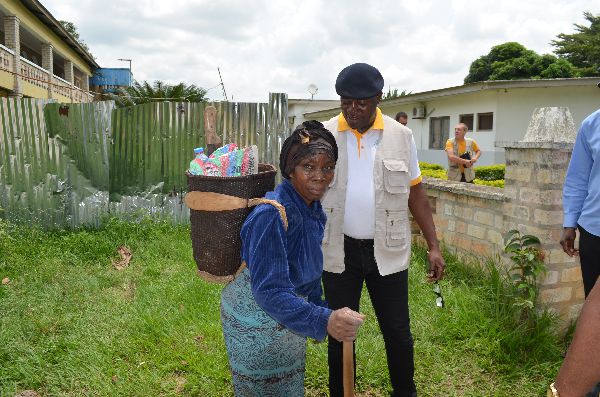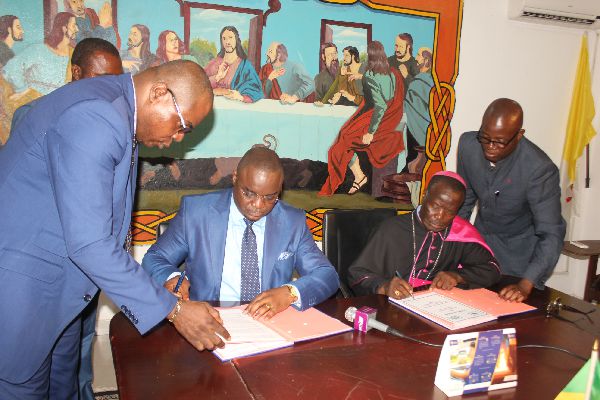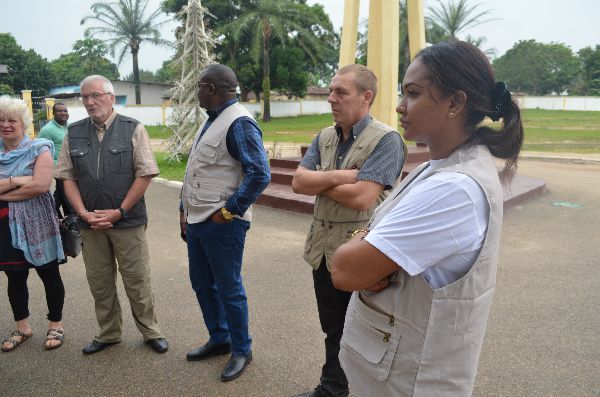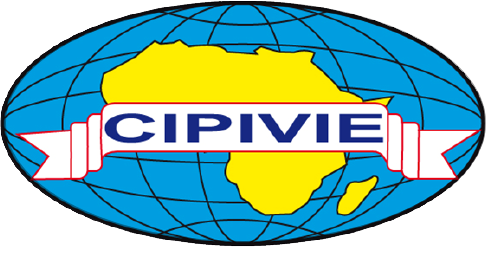What we do
CIPIVIE considers volunteering a "life choice" in all its humanitarian interventions
Agriculture project in Mikawu, Kinshasa, DRCONGO
Increasing the amount of land under cultivation has enormous potential to increase food security and sustainable, equitable economic development. Agriculture assistance focuses on livelihoods development and improving household income so that poor communities are more stable and resilient, and are better able to participate in the market. Agriculture activities also support women's empowerment, as women make up a significant proportion of Congolese farmers, have the greatest control over family nutrition, and tend to be among the poorest. (With information from the USAID - US Agency for International Development). Maman Sylvie Bongwangela, affectionately called in Kinshasa "Mama Sociale", Manager at CIPIVIE DRC also came to contribute with this new agricultural project. Watch the video.



SANITATION DONATION
" Sanitation is a cornerstone of public health" said Dr Margaret Chan, former WHO's Director-General. "Improved sanitation contributes enormously to human health and wellbeing. We know that simple, achievable interventions reduce the risk of contracting diarrhoeal disease by a third ". Maman Sylvie Bongwangela, affectionately called in Kinshasa "Mama Sociale", Manager at CIPIVIE DRC came to contribute by her own means so that the inhabitants of Mbudi in particular and in general of Mont-Ngafula and Kinshasa can have a public bathroom ( toilet ), including showers at the market of Mbudi in Kinshasa. Maman Sylvie Bongwangela is planning similar projects in other markets in Kinshasa.RECENT DONATION
In Brazzaville, on June 3 2020, The International Commitee for the Promotion of Investment, Valorisation, Innovation and Employment ( CIPIVIE ) presented Caritas Diocesan of Owando with a donation, in the hopes of aiding the people of Brazzaville in their fight against famine and the ramifications of COVID-19. Monsignor Victor Abagna Mossa expressed immense gratitude on behalf of Caritas and the people of Brazzaville for the generous gift. The donation was presented by Mr. Roch Borgia Otoungou, Vice President of CIPIVIE International.OUR HUMAN POTENTIAL
The International Committee for the Promotion of Investment, Valorization, Innovation and Employment is, by definition, an International Non-Governmental Organization. Represented internationally by its members who are strengthening through its focal points in Pretoria, South Africa, Dimona in Israel, Chicago Illinois in the United States of America and the 11 States of the Community Economic Committee of the States of Central Africa (ECCAS), CIPIVIE considers volunteering a "life choice" in all its humanitarian interventions. This identity trait, an indispensable example for creating a social conscience based on the value of solidarity, gratuity and sharing, is inspired by our partnership with the CARITAS of the Diocese of Owando, during the distribution by CIPIVIE of the School Kits And mosquito nets impregnated in June 2011 in the central basin region of Congo Brazzaville.

Alongside these volunteers, there are a small number of people hired, representing a link in the International Executive Bureau, which cannot be separated from the volunteers, in order to carry out the work of the Organization, while maintaining and respecting the principles and the criteria of an International Committee.
OUR WORK PLANNING
The International Committee for the Promotion of Investment, Valorisation, Innovation and Employment, like any International Committee operating in strict compliance with the system of international organizations, works on the basis of a Triennial Strategic Plan. This Strategic Plan, which is a salutary incentive to fulfill its part of duty in the desired direction, enables CIPIVIE to promote advocacy for a fair world through human development and to act effectively with professionalism to offer a quality service to Man.

OUR AREAS OF INTERVENTION
The International Committee for the Promotion of Investment, Valorisation, Innovation and Employment works for multidimensional emergency interventions among the most deprived and marginalized populations. As such, our work is not limited to considering these populations as the engine of our emergency interventions for their daily survival, but also and above all to the consideration of these as actors of real and sustainable development.

